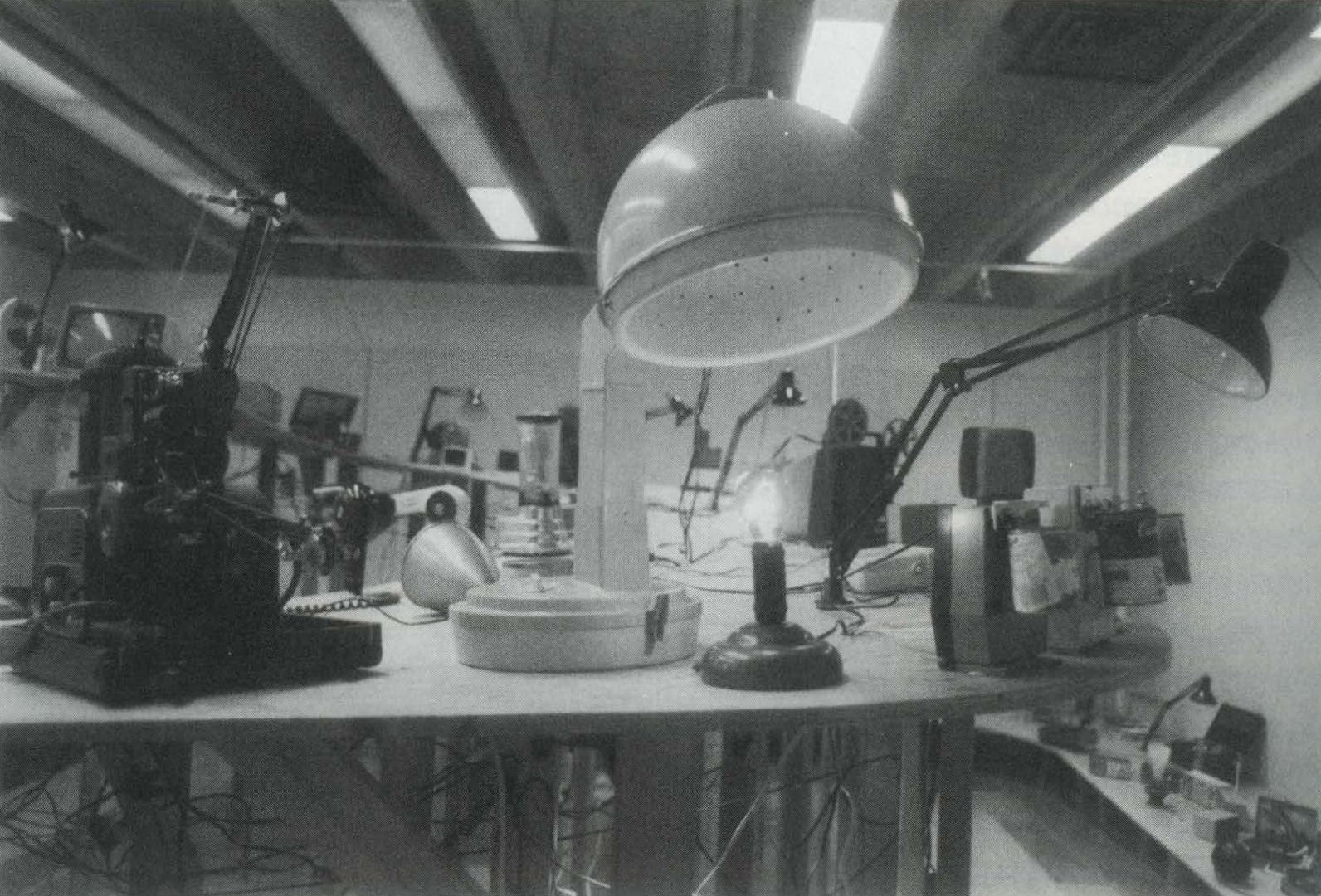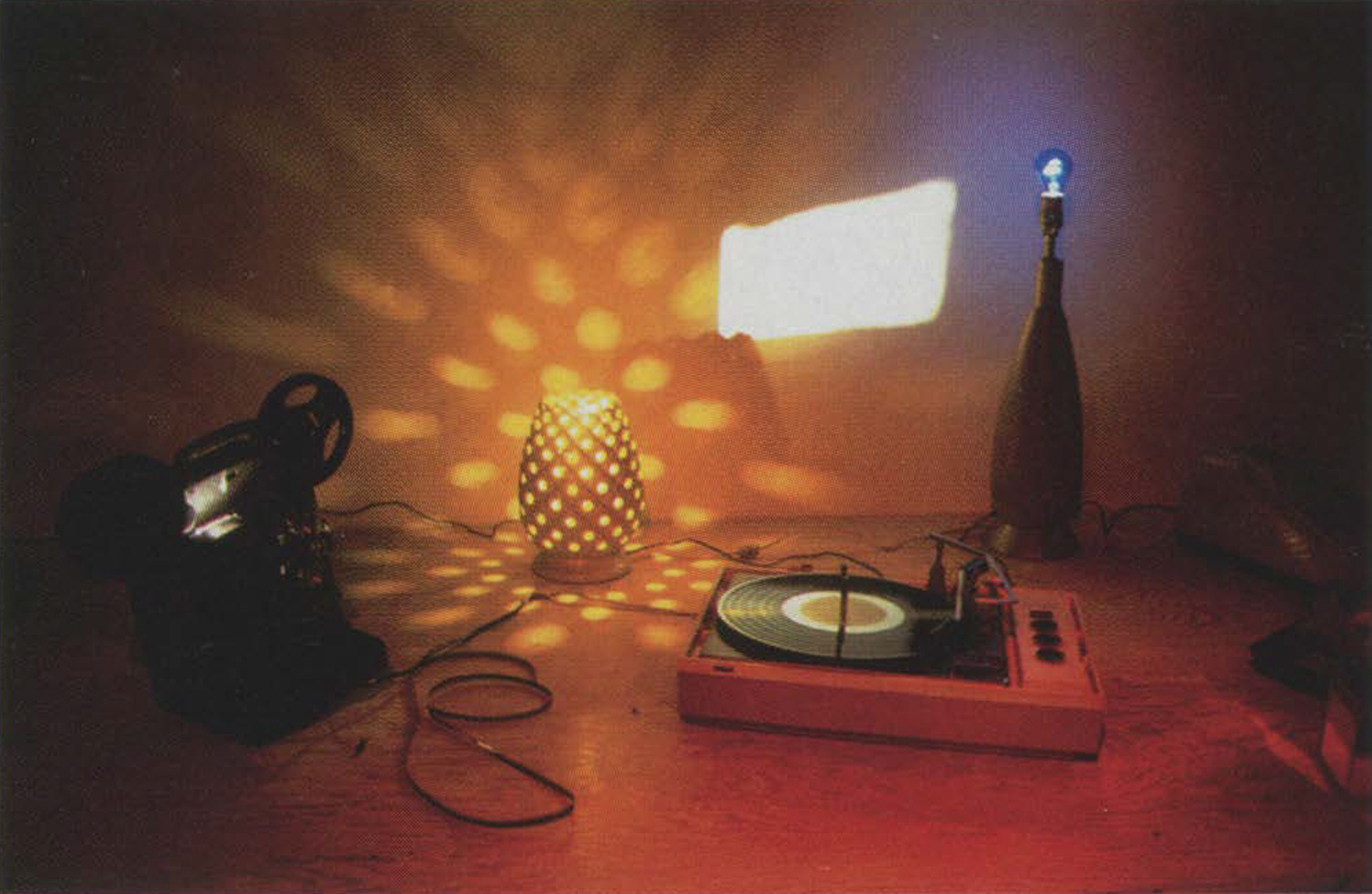Perry A. Hoberman: Faraday’s Garden
Artist(s):
Title:
- Faraday's Garden
Exhibition:
Category:
Artist Statement:
In Faraday’s Garden, participants walk through a landscape of innumerable household and office appliances, power tools, projectors, radios, phonographs, and various other personal comfort devices. The floor of the room is carpeted with switch matting, a pressure-sensitive covering designed for home security systems.
The machines wait silently, ready to be activated at any moment by the footfalls of the public. When stepped upon, the switch matting triggers the various machines and appliances, creating a kind of force field of noise and activity around each viewer. Participants can control the machines’ performance by their path through the room. As the number of participants increases, the general level of cacophony rises, creating a wildly complex symphony of machines of machines, sounds and projections.
The switch matting is broken up into a path of 96 separate input patches, with each being fed to a computer, which determines which of 96 relays (each controlling one or more appliances) are affected. Through software, the dynamics of the piece can be modified based on factors ranging from the number of participants to the time of day. The behavior of the machines can change to reflect the participants’ presence, speed, or movement.
Faraday’s Garden is conceived as a kind of technology garden. It is named after Michael Faraday, the great 19th century scientist, who was (among other things) the inventor of the first electric motor.
The machines and accessories (such as tapes, films, slides, and records) are collected primarily from thrift stores and flea markets. Since they span most of the 20th century (ranging from the Great Depression to the ultra-contemporary), movement around the room also functions as a kind of time travel.
Household appliances are coveted and exploited when new, then discarded and forgotten when obsolete. We maintain a kind of amnesia about these machines, as each is replaced by newer, more efficient models. So Faraday’s Garden is an unruly, untended place, forgotten and overgrown. All wires and switches are left exposed, creating an intense environment of electrical current.
Interaction in Faraday’s Garden fluctuates between a sense of complete and effortless control of technology (since you don’t even have to lift a finger), to the lingering and disturbing feeling that these machines are somehow … alive, sensing and responding to your presence.






